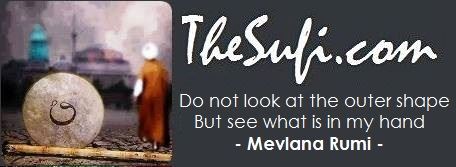Sufi Biography: Shah ibn Shoja
Abu l-Fawares Shah ibn Shoja al-Kermani, said to be of a princely family and author of works on Sufism which have not survived, died sometime after 270 (884).
Shah-e Shoja-e Kermani and his children
Shah-e Shoja-e Kermani had one son. On his breast he had written in green the word Allah. In due course the boy, overcome by the wayward impulses of youth, amused himself by strolling with lute in hand. He had a fine voice, and as he sauntered he would play the lute and sing tearful tunes.
One night, being drunk, he went out on to the streets playing his lute and singing songs. When he came to a certain quarter, a bride newly come there rose up from her husbands side and came to look at him. The husband thereupon awoke and, missing his wife, also stared at the spectacle.
Boy, he called to him, has not the time come to repent?
These words struck the youth to the heart.
It has come. It has come, he cried.
Rending his robe and breaking his lute, he betook himself to his room and for forty days ate nothing. Then he emerged and took his way.
What I was vouchsafed only after forty years, he has been granted after forty days, remarked Shah-e Shoja.
Shah-e Shoja also had a daughter. The kings of Kerman asked for her hand in marriage. He requested three days grace, and during those three days he went from mosque to mosque, till at last he caught sight of a dervish praying earnestly. Shah-e Shoja waited patiently until he had finished his prayers, then he addressed him.
Dervish, do you have any family?
No, the dervish replied.
Do you want a wife who can recite the Koran?
Who is there who will give such a wife to me? said the dervish. All I possess is three dirhams.
I will give you my daughter, said Shah-e Shoja. Of these three dirhams you possess, spend one on bread and one on attar of roses, then tie the marriage-knot.
They agreed accordingly. That same night Shah-e Shoja despatched his daughter to his house. Entering the dervishs house, the girl saw some dry bread beside a jug of water.
What is this bread? she demanded.
It remained over from yesterday. I kept it for tonight, the dervish told her.
Thereupon the girl made to leave the house.
I knew, the dervish observed, that the daughter of Shah-e Shoja would never be able to live with me and put up with my poverty.
Sir, it is not on account of your lack of means that I am leaving you, the girl replied. I am leaving because of your lack of faith and trust, in that you set aside bread from yesterday, not relying on Gods provision for the morrow. At the same time I am surprised at my father. For twenty years he has kept me at home, always saying I will give you to a godfearing man. Now he has given me to a fellow who does not rely on God for his daily bread.
Is there any atonement for this sin? the dervish asked.
Yes, said the girl. The atonement is, that only one of the two remains in this housemyself, or the dry bread.
